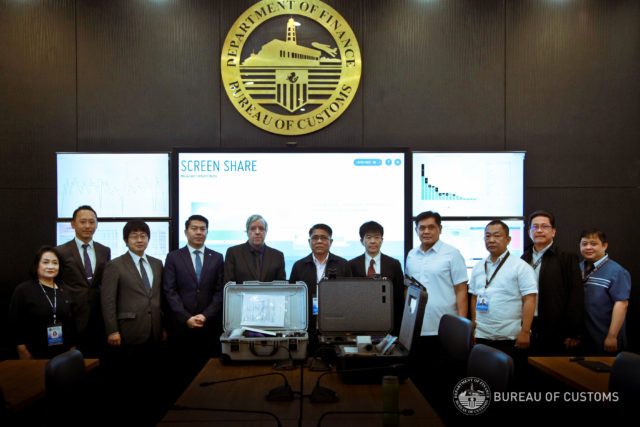
The World Customs Organization-Asia Pacific Security Project (WCO-APSP) has donated equipment to enhance the Philippine Bureau of Customs’ (BOC) capability to detect drugs and other contraband materials in shipments that go through the country’s major ports.
Donated were one x-ray fluorescence (XRF) analyzer and one Raman spectrometer, BOC said in a statement.
WCO-APSP was developed to significantly enhance the security-focused operational capabilities of Customs administrations in Southeast Asia and the Pacific Islands, particularly relating to trafficking in small arms and light weapons and the illicit diversion of precursor chemicals used to manufacture improvised explosive devices, among others.
Used to identify unknown compounds or chemicals, the Raman spectrometer efficiently identifies threats and measures a broader range of substances. The equipment also allows analysis parameters to be customized to obtain the most accurate analysis of specific materials.
Meanwhile, the XRF analyzer is used for metal identification, providing rapid and accurate element analysis and alloy identification to users who require laboratory-quality results in the field. It provides highly specific material chemistry to rapidly and precisely identify pure metals and alloy grades when material accuracy is vital.
“These detection devices are highly significant to customs and border control operations, particularly against the smuggling of metal products and chemicals that could pose a threat to security and safety,” Customs commissioner Rey Leonardo Guerrero said.
BOC noted that the enhanced vigilance by customs officials against suspicious shipments that go through the agency’s ports have already resulted in several alerts and seizures of illegal drugs and other contraband materials.
“The donated devices will definitely be a big boost to the bureau’s strengthened campaign against smuggling, especially on illegal drugs and other contraband goods,” Guerrero said.








